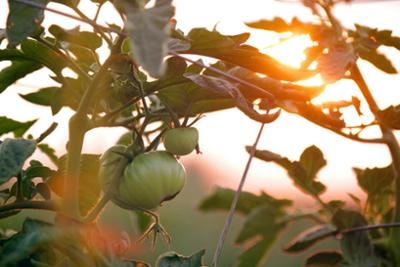

FiturNext announces its 2025 Challenge: how tourism can contribute to sustainable food management

Se pueden presentar candidaturas hasta el 31 de agosto de 2024 y los premios se entregarán en FITUR 2025.
The Observatory opens the call for the sixth edition to any tourism initiative that contributes to responsible food consumption, with good practices that reduce or generate new possibilities for the use of food surpluses.
FiturNext, FITUR's Sustainability Observatory dedicated to the search for good sustainable tourism practices, announces the launch of the 2025 Challenge focused on how tourism can contribute to sustainable food management. This call is aligned with the Sustainable Development Goals, which aim to combat climate change, responsible production and consumption, reduce hunger and promote clean and safe water.
Through the 2025 Challenge, FiturNext aims to identify and recognise initiatives that contribute to improving the tourism sector through the sustainable management of food throughout its chain, valuing aspects such as the promotion of responsible consumption, as well as the implementation of good practices that generate new possibilities for the use of food surpluses.
Applications are now open in three categories and can be submitted on this form until 31 August 2024. The selected projects, following the replicability and impact barometers, will be awarded prizes at the next International Tourism Trade Fair (FITUR) in 2025.
Impact categories
The FiturNext 2025 Challenge applications will be structured around the categories of impact and contribution to the sixth edition:
- Destinations and other territories: aimed at those territorial administrative bodies that focus their efforts on improving food management in the tourism sector.
- Horeca and transport sector: aimed at organisations of any kind in the hotel, catering, cafeteria and transport subsectors that have implemented measures to optimise food management.
- Other agents in the food value chain: aimed at all cross-cutting agents in the tourism food chain that promote good practices in food sustainability.
Surplus food and tourism
Food surplus is the waste of agricultural and food products that are still perfectly edible and suitable for human consumption and which, for lack of alternative uses or regulatory reasons, end up being discarded as waste. According to the Food and Agriculture Organisation of the United Nations (FAO), one third of all food produced for human consumption is lost or wasted each year, equivalent to 1.3 billion tonnes.
This phenomenon can be aggravated by tourism due to the lack of process optimisation, irresponsible consumption or inadequate food preservation, among other causes of surplus in the industry. In the light of the above, tourism is an industry with great potential to contribute to reducing food surpluses and to create new opportunities as an alternative to food waste.
Last webinar of the 2024 edition
The last dialogue organised by FiturNext on the 2024 Challenge took place on 14 March. Luis Romero, promoter of Recartografías, Miguel Ángel Herrera, mayor of Genalguacil and promoter of the Genalguacil Pueblo Museo project, and Alberto Luque, managing director of the Camino del Cid Consortium, were the participants of the meeting where the conclusions and lessons learned from the winning initiatives on how tourism can contribute to territorial depopulation were discussed.
The webinar is available at this link.
More information: www.ifema.es/fitur-next




